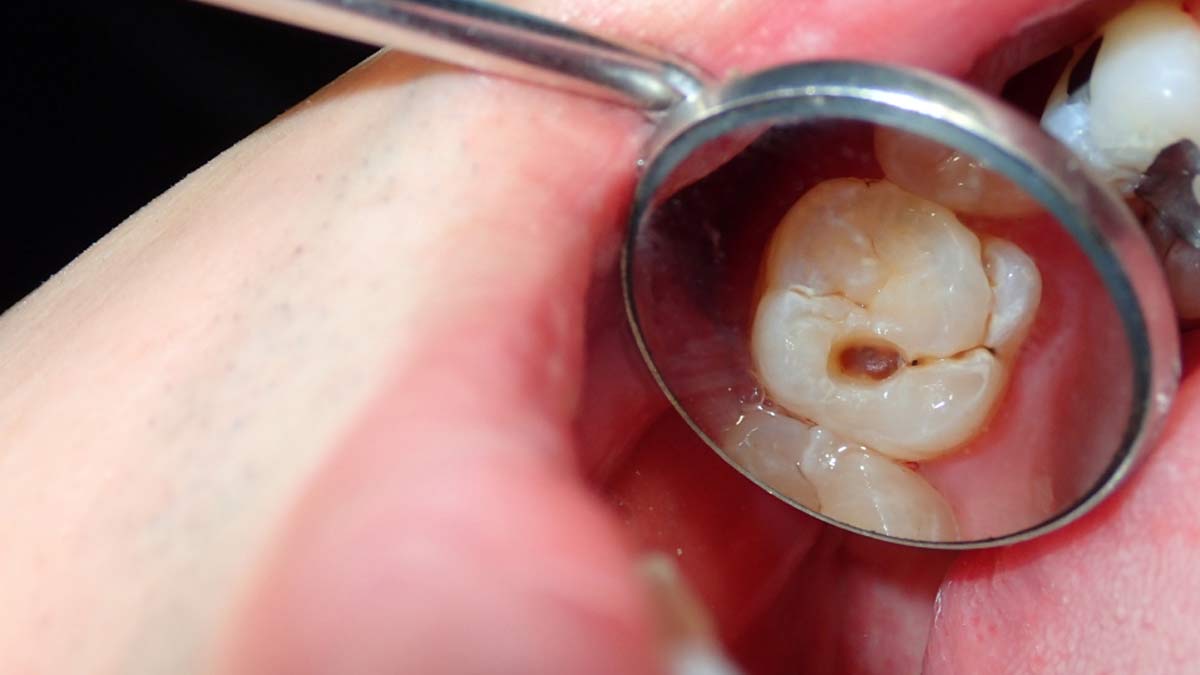
Do you brush your teeth twice a day and practice activities, such as oil pulling to promote oral care? If not, you should start doing it right away to prevent conditions like oral cavities. They are commonly known as dental caries or tooth decay and can lead to discomfort, pain, and potential complications if left untreated. While regular dental check-ups and proper oral hygiene practices are crucial, several home remedies can complement your oral care routine and help prevent oral cavities naturally. In this article, we list seven effective home remedies that you should consider.
Table of Content:-
Home Remedies To Prevent Oral Cavities

Proper Oral Hygiene
Did you know consistent oral hygiene practices are the foundation of cavity prevention? Brushing your teeth at least twice a day with fluoride toothpaste helps remove plaque, bacteria, and food particles that can contribute to cavity formation. Also, don't forget to floss daily to clean between teeth and along the gumline where a toothbrush may not reach effectively.
Oil Pulling
Oil pulling is an oral healthcare practice that involves swishing a tablespoon of coconut oil or sesame oil in your mouth for about 15-20 minutes and then spitting it out. This technique is believed to help remove bacteria, reduce plaque buildup, and promote healthier gums, potentially reducing the risk of cavities.
Also Read: 5 Ways How Oil Pulling Boosts Your Immunity & How To Do It

Mouthwash with Salt Water
Rinsing your mouth with a saltwater solution can help create an inhospitable environment for bacteria. Mix a teaspoon of salt in a glass of warm water and use it as a mouthwash after brushing and flossing. Saltwater rinse can help reduce inflammation, soothe sore gums, and assist in maintaining oral hygiene.
According to a randomised controlled trial by the Journal of the Indian Society of Pedodontics and Preventive Dentistry, both oil pulling and mouthwash significantly reduced the amount of harmful bacteria in the saliva and plaque after 15 days.
Increase Calcium and Vitamin D Intake
A diet rich in calcium and vitamin D is essential for strong teeth and bones. Hence, add dairy products like milk, cheese, and yoghurt into your diet, as they are excellent sources of calcium. Also, consume vitamin D-rich foods, such as fatty fish, eggs, and fortified cereals to promote optimal calcium absorption and support dental health.

Limit Sugary and Acidic Foods
Reducing your intake of sugary and acidic foods and beverages can significantly lower your risk of developing cavities. This is because bacteria in the mouth feed on sugars, producing acids that erode tooth enamel and contribute to decay. Opt for water or unsweetened beverages instead of sugary sodas and juices, and minimise consumption of candies, sweets, and acidic fruits to protect your teeth.
Also Read: Brush Right, Sleep Tight: Expert Explains The Importance Of Nightly Ritual For Better Oral Health
Chew Sugar-Free Gum
It is beneficial to chew sugar-free gum after meals, especially after a meal, since it stimulates saliva production. Saliva helps neutralise acids in the mouth, wash away food particles, and remineralise tooth enamel, thus reducing the risk of cavities. You should look for gums sweetened with xylitol, a natural sugar substitute that may inhibit the growth of cavity-causing bacteria.
Use Fluoride Toothpaste and Mouthwash
Among other things, fluoride helps strengthen tooth enamel and protect it against acid attacks from bacteria. Hence, brushing with fluoride toothpaste and using fluoride mouthwash can help protect your teeth against cavities and promote remineralisation. You should ensure that your toothpaste and mouthwash contain fluoride and use them as directed by your dentist.
Bottomline
Preventing oral cavities requires a proactive approach to oral care and overall health. Incorporating these home remedies into your daily routine, along with regular dental check-ups and professional cleanings, can help maintain optimal oral health and prevent the development of cavities. However, if you experience persistent tooth pain, sensitivity, or signs of cavities, it's essential to consult your dentist promptly for appropriate diagnosis and treatment.
[Disclaimer: This article contains information for informational purposes only, hence, we advise you to consult your dentist if you notice signs of any oral health conditions to seek necessary treatment.]
Also watch this video
How we keep this article up to date:
We work with experts and keep a close eye on the latest in health and wellness. Whenever there is a new research or helpful information, we update our articles with accurate and useful advice.
Current Version